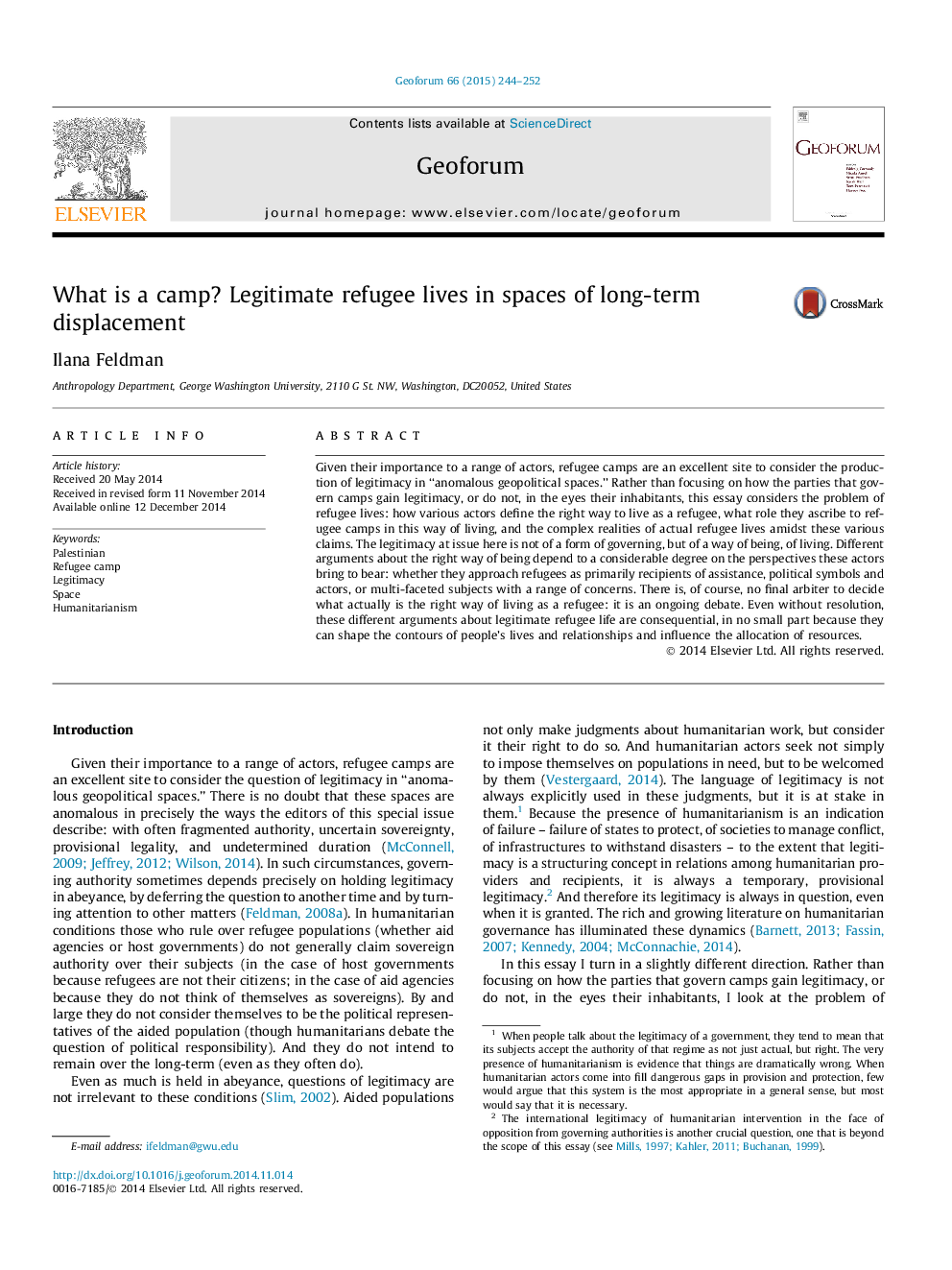| کد مقاله | کد نشریه | سال انتشار | مقاله انگلیسی | نسخه تمام متن |
|---|---|---|---|---|
| 5073615 | 1477123 | 2015 | 9 صفحه PDF | دانلود رایگان |
- Refugee camps are crucial spaces for working out refugee identity and claims.
- The meanings ascribed to camps shape relations among various actors in these spaces.
- The humanitarian, political, and emotional aspects of camps all impact refugee lives.
- Camps are sites for the articulation of arguments about what constitutes a legitimate refugee life.
Given their importance to a range of actors, refugee camps are an excellent site to consider the production of legitimacy in “anomalous geopolitical spaces.” Rather than focusing on how the parties that govern camps gain legitimacy, or do not, in the eyes their inhabitants, this essay considers the problem of refugee lives: how various actors define the right way to live as a refugee, what role they ascribe to refugee camps in this way of living, and the complex realities of actual refugee lives amidst these various claims. The legitimacy at issue here is not of a form of governing, but of a way of being, of living. Different arguments about the right way of being depend to a considerable degree on the perspectives these actors bring to bear: whether they approach refugees as primarily recipients of assistance, political symbols and actors, or multi-faceted subjects with a range of concerns. There is, of course, no final arbiter to decide what actually is the right way of living as a refugee: it is an ongoing debate. Even without resolution, these different arguments about legitimate refugee life are consequential, in no small part because they can shape the contours of people's lives and relationships and influence the allocation of resources.
Journal: Geoforum - Volume 66, November 2015, Pages 244-252
